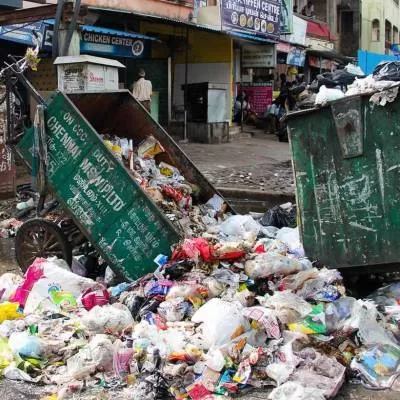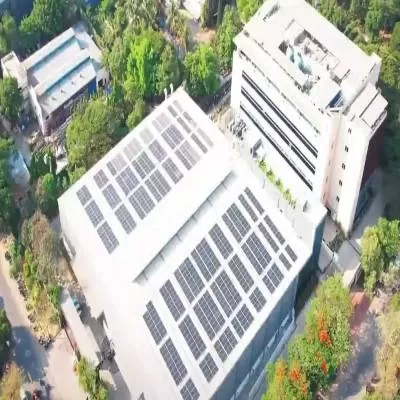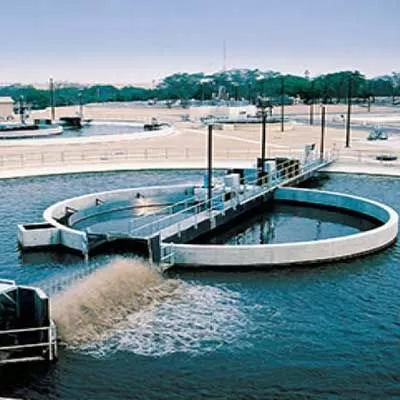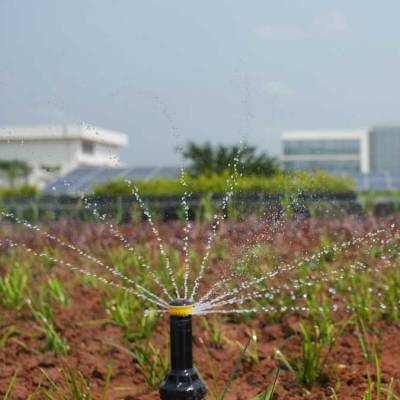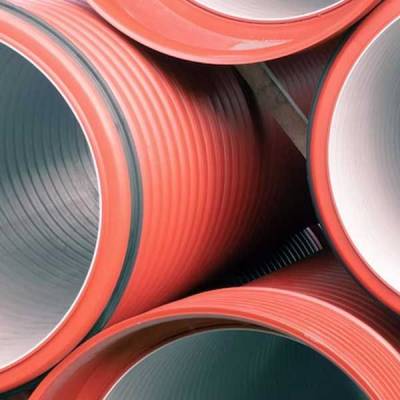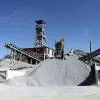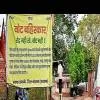- Home
- Infrastructure Urban
- WATER & WASTE
- Tenders for projects worth Rs.250 crore to Rs.300 crore will be finalised soon
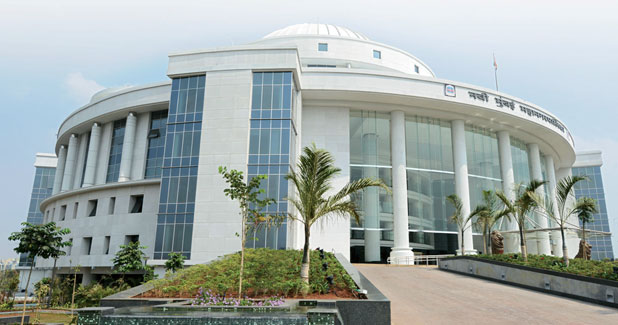
Tenders for projects worth Rs.250 crore to Rs.300 crore will be finalised soon
Consider this: Navi Mumbai is the only city to have achieved 85 per cent of the service-level benchmark prepared by the Government of India´s Urban Development Department! Developed by the City and Industrial Development Corporation of Maharashtra (CIDCO), the city is maintained by the Navi Mumbai Municipal Corporation (NMMC). With a wide range of departments - municipal transport, public health, hospitals, solid waste management, education - under his watch, Sanjay Pattiwar, Additional Municipal Commissioner, Navi Mumbai Municipal Corporation (NMMC), has contributed immensely towards the city´s development - and plans to do much, much more. In conversation with CW, he shares the developmental measures the corporation has undertaken.
What are the challenges a corporation faces in a developed city?
Navi Mumbai is listed among the ´organised´ and ´well-planned´ cities. The problems faced by a planned and unplanned city are different. For instance, an unplanned city needs solutions for basic issues such as sewage problem, water supply and road network while the issues with planned cities are advanced and need the provision of qualitative services. Also, as Navi Mumbai´s infrastructure is developed by CIDCO, infrastructural development does not come under the ambit of the corporation.
What are the developmental measures undertaken by the corporation for drainage, sewerage and street lighting?
The municipal corporation has 100 per cent sewer line in the city and it is treated into potable water. This project has been initiated by NMMC. Second, we have constructed a sanitary landfill site, considered one of the best in the country, which helps treat and dispose of garbage in a scientific manner. This includes the compost and energy pillet project. The sewage treatment plant helps convert sewage water into potable water that is used for drinking and other purposes. At present, we are looking forward to sell this treated water to factories or other applicants.
We currently have 40 acre of scientific landfill site that processes 600 tonne of garbage everyday into compost and Refuse Derived Fuel (RDF). Navi Mumbai is the only corporation in India that processes complete garbage.
Apart from this, we have five air-monitoring stations in the city to monitor the air quality, thus keeping a check on pollution. A lot of industries in the city have been closed and converted into IT parks, thus reducing industrial pollution significantly. Also, NMMC maintains around 35,000 poles and these are operated using a Geographic Information System (GIS) system. This ensures easy detection of complaints if any. As for roads, we have concretised them and do not use tar.
Tell us about the ongoing or upcoming major infrastructure projects. Of these, are there any tenders to be floated in the near future?
The corporation is planning a solar project on Morbe Dam, concretisation of roads in the industrial area and the development of a municipal depot in Ghansoli to cater to services to Airoli, Mahape, Thane and Koparkhairne, thus focusing on the industrially active belt. Tenders for the same are in process and will be finalised in two months. These projects are worth Rs 250 crore to Rs 300 crore.
Are you planning to add any smart and intelligent features to Navi Mumbai´s development? What are the requirements to make Navi Mumbai a smart city?
Navi Mumbai has all the potential to become a smart city as the basic parameters required are already present. A few more additions and the city can be transformed into a smart city. We have submitted our proposal for the same to the Central Government and are waiting for its approval.
Most of Navi Mumbai´s civic services are handled by private contractors. How does this help in providing quality services to citizens?
Bringing in privatisation of civic services is essential for efficient working. NMMC has delegated the maintenance and operations of such public services to private contractors. The payment is done on the basis of their performance. This procedure is not found in other corporations. Also, the staff is not paid by the corporations but by the respective private companies. This helps reduce the cost on the corporation. Some services delegated to private players include garbage collection and transport, water supply distribution, payment collection, sewer line maintenance system, hospital services, etc.
With the Modi Government´s announcement of Swachh Bharat Abhiyan, are you planning a cleanliness drive?
We have been a part of a cleanliness drive for a decade now. Our corporation has received the Sant Ghadge Baba Cleanliness Award initiated by the state government thrice (2003-4, 2005-6 and 2008-9). This has been possible owing to the collective efforts of the civic staff, citizens, social organisations, NGOs, residential societies and the students´ community. With regard to the Swachh Bharat Abhiyan, we certainly look forward to building more toilets at certain strategic points across the city. At present, we have sufficient public toilets for the population residing in the city. These toilets are maintained by NGOs and funded by the corporation.
Any upcoming JNNURM projects for which tenders are expected to float in the near future?
One of the projects sanctioned under JNNURM is the provision of 195 buses, of which 60 are air-conditioned Volvo buses while the rest are semi-luxury buses. These will be run across Kharghar, Panvel, Navi Mumbai and Thane. NMMC is the second corporation after Bengaluru to have assigned Volvo buses in the city. Moreover, other projects completed by JNNURM include sanitary land-fill sites, mechanised sweeping, sewage water treatment, etc. Under JNNURM, the Government funds 50 per cent of the project cost. For the bus project, the Government is funding 60 per cent and the rest is provided by the state government or corporation. The city´s sewage treatment plant is developed by CIDCO. The funds have been provided by JNNURM for the processing of the sewerage system wherein sewer water is converted into potable water.
Navi Mumbai
Municipal Corporation
Year of establishment: 1992
Total city area: 108 sq km
Population: 1.4 million
Annual budget: Rs.2,000 crore
Municipal Councillors: 91
- Sanjay Pattiwar
- Navi Mumbai Municipal Corporation
- Government of India´s Urban Development Department
- CIDCO
- NMMC
- Municipal Transport
- Public Health
- Hospitals
- Solid Waste Management
- Education
- Sewage Problem
- Water Supply
- Road network
- Compost
- Energy Pillet project
- RDF
- IT parks
- GIS
- Morbe Dam
- Garbage Collection
- Transport
- Water Supply Distribution
- Payment Collection
- Sewer Line Maint
Sanjay Pattiwar, Additional Municipal Commissioner, Navi Mumbai Municipal Corporation Consider this: Navi Mumbai is the only city to have achieved 85 per cent of the service-level benchmark prepared by the Government of India´s Urban Development Department! Developed by the City and Industrial Development Corporation of Maharashtra (CIDCO), the city is maintained by the Navi Mumbai Municipal Corporation (NMMC). With a wide range of departments - municipal transport, public health, hospitals, solid waste management, education - under his watch, Sanjay Pattiwar, Additional Municipal Commissioner, Navi Mumbai Municipal Corporation (NMMC), has contributed immensely towards the city´s development - and plans to do much, much more. In conversation with CW, he shares the developmental measures the corporation has undertaken. What are the challenges a corporation faces in a developed city? Navi Mumbai is listed among the ´organised´ and ´well-planned´ cities. The problems faced by a planned and unplanned city are different. For instance, an unplanned city needs solutions for basic issues such as sewage problem, water supply and road network while the issues with planned cities are advanced and need the provision of qualitative services. Also, as Navi Mumbai´s infrastructure is developed by CIDCO, infrastructural development does not come under the ambit of the corporation. What are the developmental measures undertaken by the corporation for drainage, sewerage and street lighting? The municipal corporation has 100 per cent sewer line in the city and it is treated into potable water. This project has been initiated by NMMC. Second, we have constructed a sanitary landfill site, considered one of the best in the country, which helps treat and dispose of garbage in a scientific manner. This includes the compost and energy pillet project. The sewage treatment plant helps convert sewage water into potable water that is used for drinking and other purposes. At present, we are looking forward to sell this treated water to factories or other applicants. We currently have 40 acre of scientific landfill site that processes 600 tonne of garbage everyday into compost and Refuse Derived Fuel (RDF). Navi Mumbai is the only corporation in India that processes complete garbage. Apart from this, we have five air-monitoring stations in the city to monitor the air quality, thus keeping a check on pollution. A lot of industries in the city have been closed and converted into IT parks, thus reducing industrial pollution significantly. Also, NMMC maintains around 35,000 poles and these are operated using a Geographic Information System (GIS) system. This ensures easy detection of complaints if any. As for roads, we have concretised them and do not use tar. Tell us about the ongoing or upcoming major infrastructure projects. Of these, are there any tenders to be floated in the near future? The corporation is planning a solar project on Morbe Dam, concretisation of roads in the industrial area and the development of a municipal depot in Ghansoli to cater to services to Airoli, Mahape, Thane and Koparkhairne, thus focusing on the industrially active belt. Tenders for the same are in process and will be finalised in two months. These projects are worth Rs 250 crore to Rs 300 crore. Are you planning to add any smart and intelligent features to Navi Mumbai´s development? What are the requirements to make Navi Mumbai a smart city? Navi Mumbai has all the potential to become a smart city as the basic parameters required are already present. A few more additions and the city can be transformed into a smart city. We have submitted our proposal for the same to the Central Government and are waiting for its approval. Most of Navi Mumbai´s civic services are handled by private contractors. How does this help in providing quality services to citizens? Bringing in privatisation of civic services is essential for efficient working. NMMC has delegated the maintenance and operations of such public services to private contractors. The payment is done on the basis of their performance. This procedure is not found in other corporations. Also, the staff is not paid by the corporations but by the respective private companies. This helps reduce the cost on the corporation. Some services delegated to private players include garbage collection and transport, water supply distribution, payment collection, sewer line maintenance system, hospital services, etc. With the Modi Government´s announcement of Swachh Bharat Abhiyan, are you planning a cleanliness drive? We have been a part of a cleanliness drive for a decade now. Our corporation has received the Sant Ghadge Baba Cleanliness Award initiated by the state government thrice (2003-4, 2005-6 and 2008-9). This has been possible owing to the collective efforts of the civic staff, citizens, social organisations, NGOs, residential societies and the students´ community. With regard to the Swachh Bharat Abhiyan, we certainly look forward to building more toilets at certain strategic points across the city. At present, we have sufficient public toilets for the population residing in the city. These toilets are maintained by NGOs and funded by the corporation. Any upcoming JNNURM projects for which tenders are expected to float in the near future? One of the projects sanctioned under JNNURM is the provision of 195 buses, of which 60 are air-conditioned Volvo buses while the rest are semi-luxury buses. These will be run across Kharghar, Panvel, Navi Mumbai and Thane. NMMC is the second corporation after Bengaluru to have assigned Volvo buses in the city. Moreover, other projects completed by JNNURM include sanitary land-fill sites, mechanised sweeping, sewage water treatment, etc. Under JNNURM, the Government funds 50 per cent of the project cost. For the bus project, the Government is funding 60 per cent and the rest is provided by the state government or corporation. The city´s sewage treatment plant is developed by CIDCO. The funds have been provided by JNNURM for the processing of the sewerage system wherein sewer water is converted into potable water. Navi Mumbai Municipal Corporation Year of establishment: 1992 Total city area: 108 sq km Population: 1.4 million Annual budget: Rs.2,000 crore Municipal Councillors: 91


